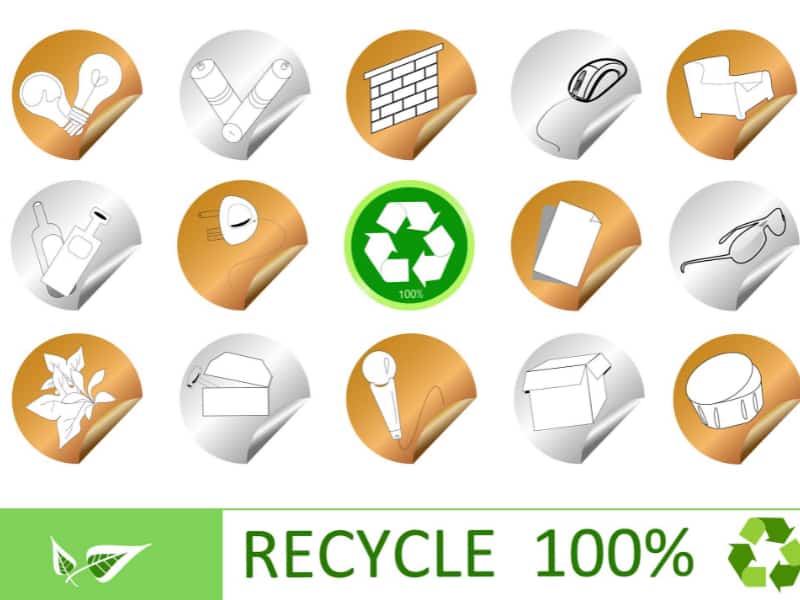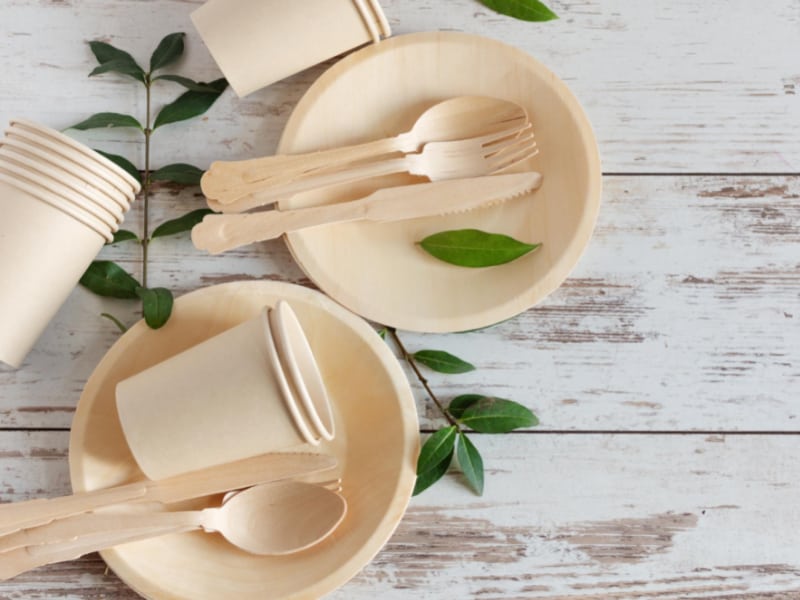Recycling has become trendy, but most people just throw away their trash without thinking twice. Not everyone recycles because it takes extra work and effort. In fact, we’ve created a landfill crisis in our country.
We have to find new ways to manage waste, and recycling is part of the solution. Waste management can no longer be ignored so that’s why I’m here.
This article will talk about biodegradable vs compostable ways of recycling. I will cover the differences between the two, examples of items that are biodegradable and compostable, and the environmental benefits of both.
Both compostable and biodegradable products are environmentally friendly, but there are some differences between them. Compostable products break down easily when exposed to air and water, while biodegradable products break down over time and take longer. Some biodegradable products may contain plastic that’s plant-based, while compostable products are made of organic materials.

What is Biodegradable?
The term biodegradable means something that breaks down naturally over time. It happens when organisms such as bacteria or fungi break down and disintegrate items into their core components. For example, biodegradable plastic breaks down into water, carbon dioxide, and a few other chemicals.
Many things in the world are biodegradable, but they vary by the length of time that something breaks down. For example, biodegradable plastic can break down, but it will take decades and even centuries for it to naturally disintegrate.
On the other hand, paper breaks down very quickly and is compostable too. Most biodegradable products will take anywhere from 3 to 6 months to decompose.
When products are said to be “biodegradable,” that means they will naturally break down in a landfill. The only difference with biodegradable products is the time of how long it will take to degrade, whether it’s months, years, decades, or centuries.
If you’re looking for biodegradable products to help protect the environment, look for ones that take less biodegradation time. Products that take longer to breakdown should be avoided.
What is Compostable?
Compostable means something that is made of organic matter, will decompose, and can be used as food for plants. It refers to items that can be put in a compost pile to go through the composting process.
Composting is the process of breaking down organic matter like food scraps, yard trimmings, leaves, and grass clippings. Compost helps improve soil structure and acts as a natural, organic fertilizer for plants.
Compostable materials are great, but they require the right conditions, like a compost bin to efficiently break down without toxic residue. When the materials are in a landfill, they may not decompose or will take decades to break down into a finished compost product.
Learn more about How to Start Composting.
Biodegradable vs Compostable – What’s the Difference?
First, let’s discuss the relationship they have – All compostable materials are biodegradable, but not all biodegradable materials are compostable.
There are a few key differences between biodegradable and compostable products.
- Decomposition Methods – Compostable products require a specific set up in order to be broken down by nature, like a compost pile. Biodegradable products can break down naturally in places like landfills, but usually take longer to do so.
- Composite Materials – Compostable products are made of organic materials, which makes them easier to break down. On the other hand, biodegradable products are made of non-organic materials that will break down naturally, but take longer and could cause environmental damage if disposed of improperly.
- Potential Chemicals – Compostable items do not contain harmful chemicals that will leach into the ground and waterways. But some biodegradable products can contain chemicals that can leach out of the product and contaminate groundwater. This is why most states have regulations on where biodegradable products can be placed.
Both of these types of products are better for our environment than conventional plastic products that take centuries to decompose.

What is a Biodegradable Compost Bag?
A biodegradable compost bag is an eco-friendly alternative to traditional plastic bags that can be placed in your compost piles. They are made from plant fibers and cornstarch, and contain no polyethylene.
These types of bags are helpful because they don’t create any waste when discarded. Instead, they break down over time and add nutrients back into the soil.
How to Use a Biodegradable Bag
You can use a biodegradable compostable bag just like you would a regular plastic bag, except you’d only fill it with compostable materials. Just make sure you place it in a compost bin or outside on the ground.
Tips to Help the Environment
Biodegradable and compostable products are both eco-friendly, but still need to be processed correctly to ensure their safe disposal.
Compostable and biodegradable products are often thrown away by consumers who, not understanding them, think they’re just going to break down safely in the landfills. Unfortunately, many of those items will get buried under trash where there’s little to no oxygen.
Biodegradable and some compostable organic waste needs oxygen, light, and bacteria to break down correctly and safely. When there’s no oxygen, it enters an anaerobic process of breaking down materials that will end up producing methane gas.
There are certain products that need to be broken down at industrial composting facilities with special equipment. These include plastics, wood, metal, glass, and rubber. If you throw any of these items in your regular garbage, they won’t break down properly.
Biodegradable and compostable are the most popular terms when it comes to recycling. But they’re often confused with each other.
That confusion led to the creation of the US Standard ASTM D6400-99 and European Standard EN 13432. They describe what materials are and are not compostable and biodegradable.
As I mentioned earlier, not all biodegradable items are compostable, so not all composting facilities will accept items labeled as “biodegradable.” That’s because different composting facilities use different methods to break down material, and those items will not decompose completely or will take too long to break down.
So make sure items meet the US or European standards before deciding on what to do with them. Also consider how long biodegradable items take to break down before throwing them in the trash. Some may only last a few weeks, while others can last months or years.
Biodegradable vs Compostable Final Thoughts
Compostable and biodegradable are great options for environmentally friendly products. Just be careful about what you buy and how you dispose of it.
You might be interested in these other articles:


